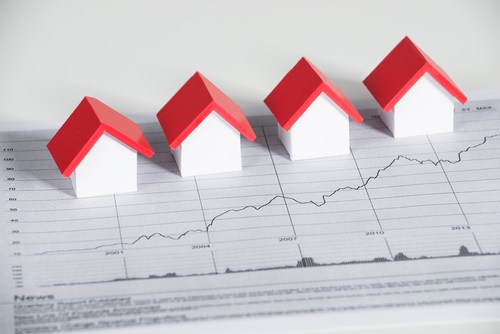
Projection for Housing Market
The U.S. economy is in its eighth year of expansion, and the housing market is coming off its best year in a decade. Read this post to find out why.
To view the full article please register below:
Projection for Housing Market
Conventional wisdom once assured Americans that home prices moved in one direction—up. That changed in an instant in the wake of the Great Recession. While housing prices have mostly recovered, the confidence in the inevitability of ever-increasing home values remains shaky.
The long-term case for appreciating home values rests on the same three pillars it always has:
- A Vibrant Economy
The U.S. economy is in its eighth year of expansion, and the housing market is coming off its best year in a decade. Yet, economic growth has lagged historical averages, and wage growth has been sluggish in the last decade. While predicting economic growth 10 years out is, at best, educated guesswork, the U.S. economy remains a powerful engine of innovation and wealth creation.
- Home Affordability
Wages, mortgage rates and tax policy all play a major role in home affordability.
Stagnant wages, especially with rising home prices, make purchasing a home more difficult. Falling unemployment and higher minimum wages haven’t yet led to real wage growth, which may not come until economic productivity rates increase. Rising rates also makes ownership more expensive, though the higher cost of a 15- or 30-year mortgage may be partially offset by adjustable-rate options. Tax policies can boost economic growth and take-home pay, but increases in standard deductions and a flattening of marginal tax rates could make owning less affordable.
- Housing Demand and Supply
Household formations are central to creating new housing demand. The Millennial generation has been slow to form households as they grapple with the burden of student debt. However, the pace of formations is expected to quicken, with an anticipated 13 million net households forming over the next 10 years.1
Overseas buyers are an important source of housing demand. A stronger U.S. currency makes real estate more expensive. While it may not impact the overall housing market, it could affect individual markets, such as Florida, California, Texas, Arizona and New York. The glut of distressed homes has declined substantially, and should be less of a factor weighing down home prices.
From 1890 through 2012, on an inflation-adjusted basis, home prices were essentially flat, while the S&P 500 increased more than 2,000-fold; real home prices actually declined 10 percent over the period 1890 through 1980.2
The housing market faces challenges prospective buyers shouldn’t ignore, including high levels of student loan debt, regulatory constraints on the construction industry and an uncertain mortgage market for lenders.
Nevertheless, a house, for most individuals, is a home first and an investment second. If owning fits an individual’s desired lifestyle, then purchasing a home may be less likely to disappoint.
Sources:
- https://www.economy.com/dismal/analysis/free/244790
- http://www.usatoday.com/story/money/personalfinance/2014/05/10/why-your-home-is-not-a-good-investment/8900911/
See referenced disclosure (2) (3) at https://blog-dev.americanportfolios.com/disclosures/












